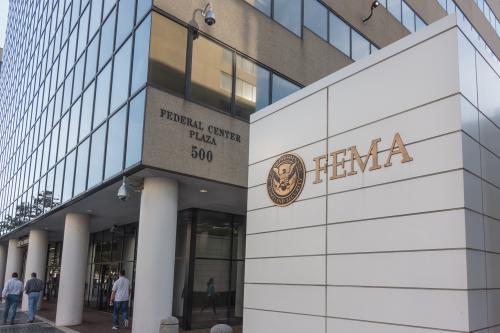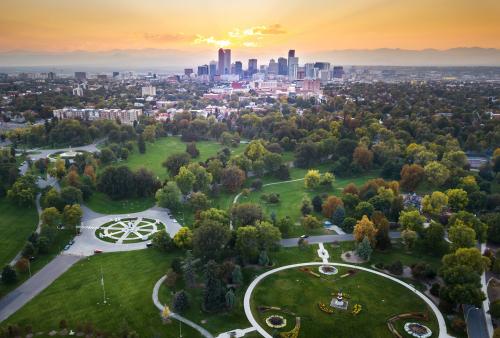Editor’s Note: This is a series of analysis and observations from the ground in Copenhagen. During the 15th annual climate change conference, Brookings expert Nathan Hultman tracks the negotiations, offering insight into the governance process.
A small sign pasted above the emergency brake in each of the Copenhagen metro train cars reads, in Danish and English, “To activate emergency brake, pull handle. Train will stop at the next station.” When I first noticed the sign this morning, I thought the translation must be incorrect; but I happen to know enough Danish to verify that this is indeed what the sign means. I understand that the Danes pride themselves, to some degree, on their balanced approach to life; but I find this application of the laid-back lifestyle to be a bit overly sanguine. To some people, myself included, the term “emergency” might imply the possibility of needing to stop the train before the next station. Nevertheless, on what was to have been the final day of climate negotiations, this obscure sign elegantly bespoke both the challenges inherent in addressing climate change and the task-at-hand for world leaders, including President Obama, who are trying to figure out if they can muster the collective will even to pull the handle.
Delegates have been negotiating for two weeks in Copenhagen on a deal that, even under its most ambitious envisioning, would likely not have entailed emissions reduction commitments large enough to keep warming under the (almost) consensus target of 2 degrees C. Emissions that lead to climate change, much like the momentum of my Copenhagen metro train, are hard to reduce quickly: they derive from widespread capital investments, many of which take decades to depreciate—a coal-fired power plant built next year for example, will likely be in use until at least 2050, and probably to 2070, releasing tons of CO2 almost every hour of its life. So even if world leaders act today to reach the hoped-for agreement, the climate train may not stop until the “next station”—in other words, it might well stop beyond the point we’d like to be, and if so, it would be too late to avoid at least some human suffering, some economic damage, and some ecological destruction.
Unfortunately, this more-ambitious treaty seems now out of reach for this negotiating session. As the days have ticked by, and relatively small problems have been tackled (and occasionally solved), the larger issues of contention seem to have gone largely unmanaged, the victims of petty distractions and negotiating disarray. After a long day of negotiations today, following what amounted to an all-nighter by ministers and advisers last night, frustration is high. A draft text that was assembled overnight by the U.S., U.K., and others, was rejected by the other parties. People held out hope that Obama could, with a rousing speech and potential new offers by the United States, nudge the delegates enough to dissolve the deadlock. But against these expectations, Obama’s speech was disappointing, and offered only encouragement with a reiteration of past statements of U.S. policy and recent U.S. proposals at Copenhagen. At the time I am writing this, rumors are circulating that delegates will stay through the weekend to finalize a deal, but the U.N. does not seem to have gotten this memo.
In short, the concluding hours of the official segment of the meeting, at least, seem to be in line with the workings of the past week: uncertain, halting, impotent and fractured. Environmental groups and other climate advocates are still holding out hope for a late-night resolution. But the time has nearly run out to pull the handle. If negotiations drag out another year, or five, the world will just keep riding down the emissions track, smoothly for now, but moving inexorably toward a known danger and not seeming to be able to agree on a way out.



Commentary
The Final Day in Copenhagen: Finding Collective Action to ‘Stop the Train’
December 18, 2009